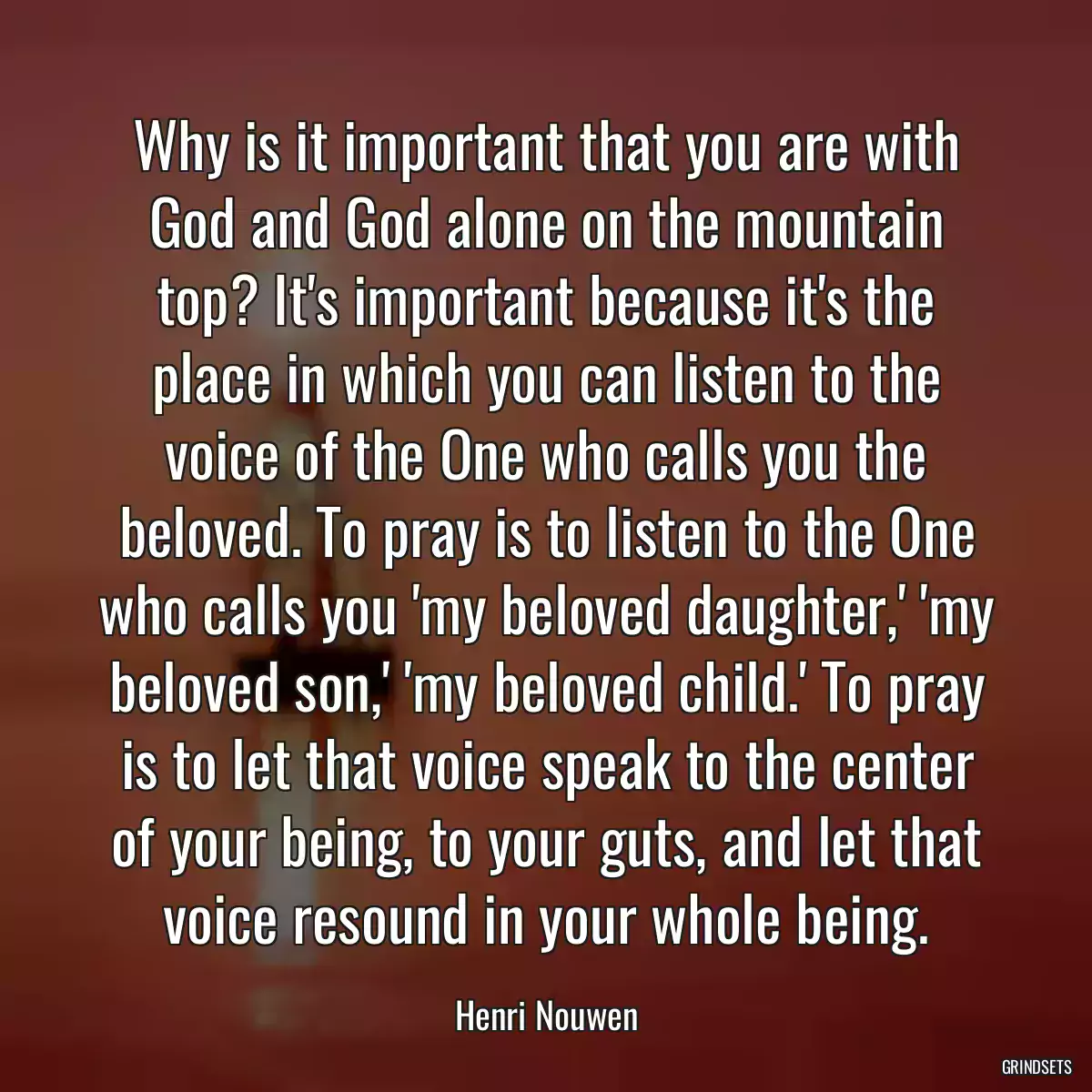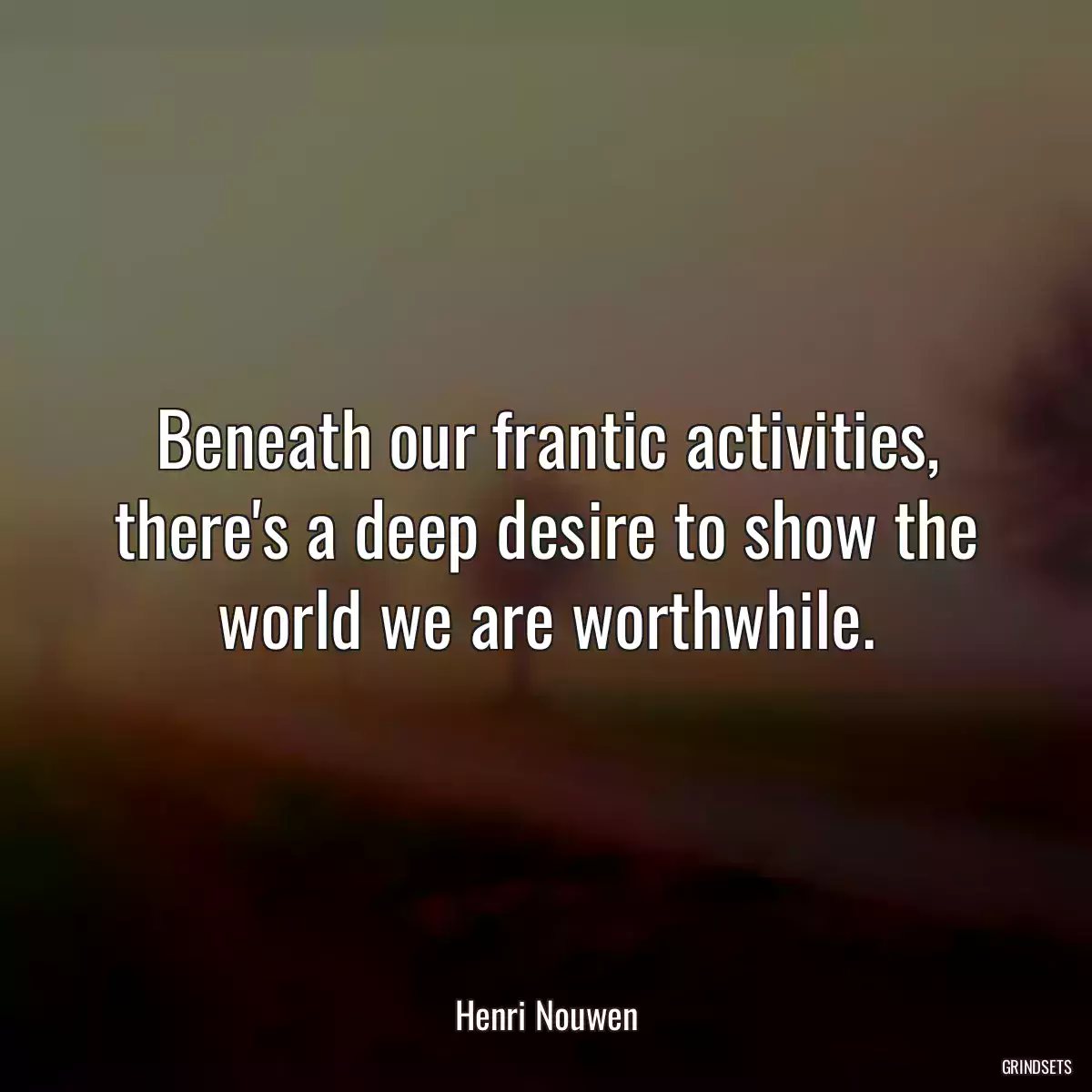
Why is it important that you are with God and God alone on the mountain top? It's important because it's the place in which you can listen to the voice of the One who calls you the beloved. To pray is to listen to the One who calls you 'my beloved daughter,' 'my beloved son,' 'my beloved child.' To pray is to let that voice speak to the center of your being, to your guts, and let that voice resound in your whole being.

